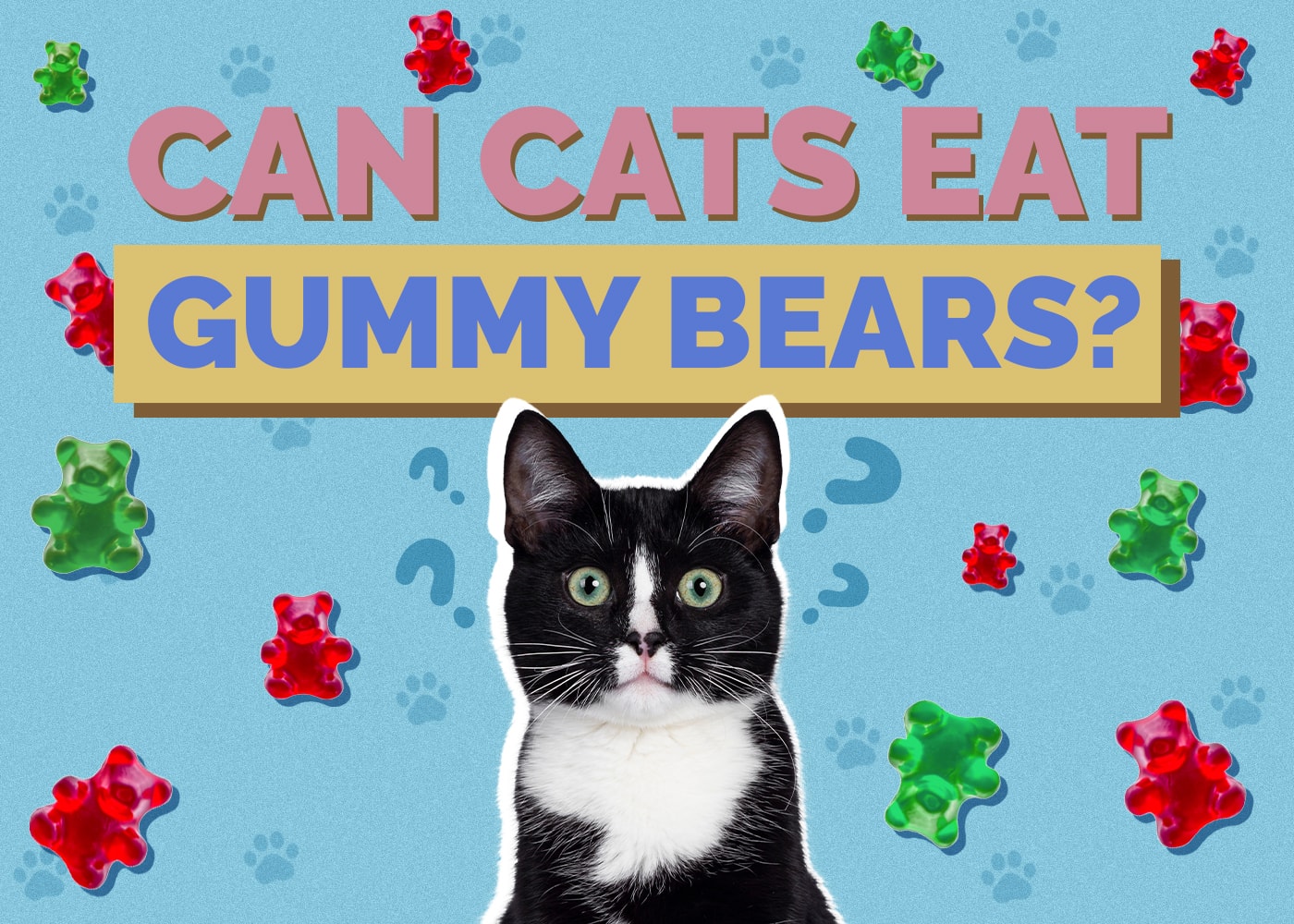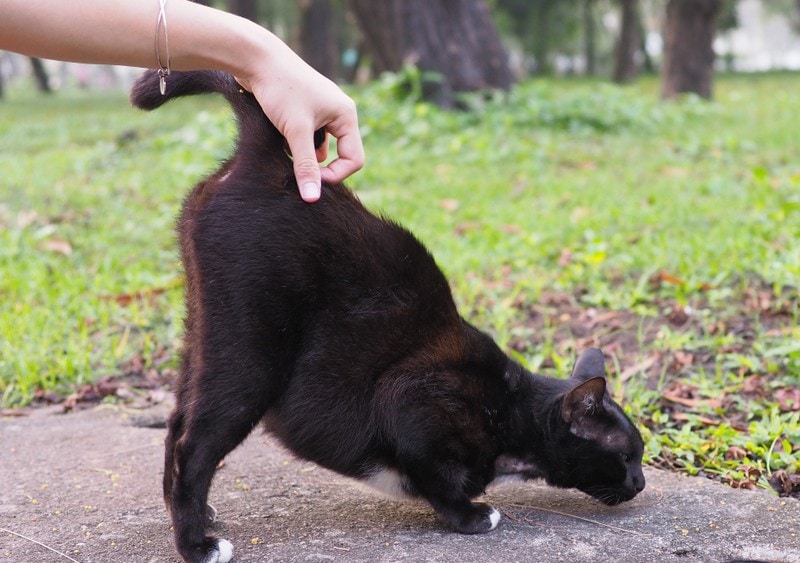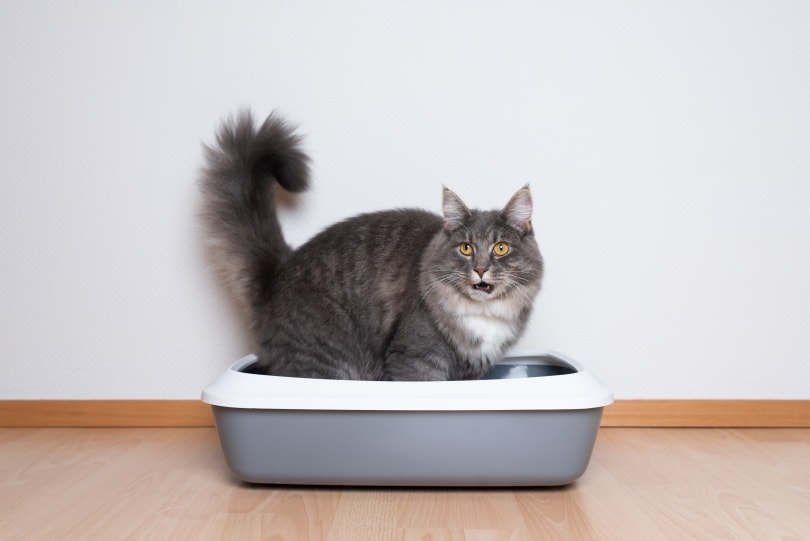Why Does My Cat Chew on My Fingers? 8 Likely Reasons
By Kit Copson
Updated on
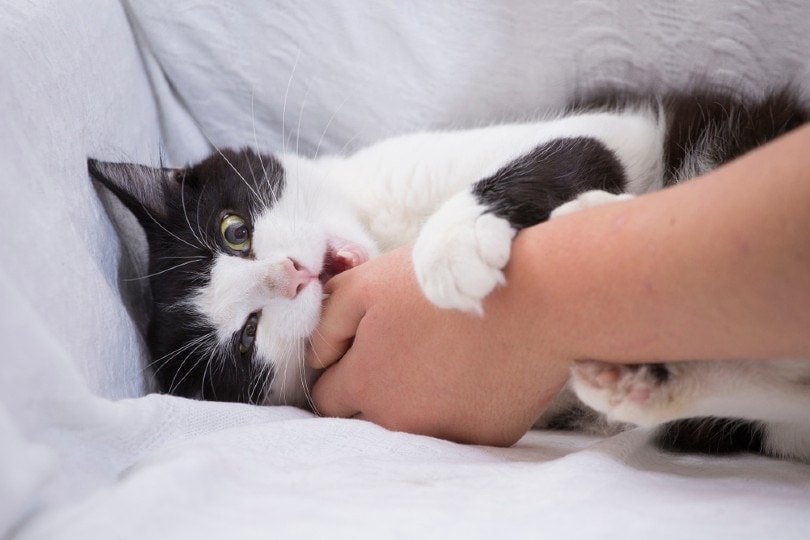
Sometimes, our cats behave in ways that completely baffle us. With some cats, no matter how many tasty treats they get, they seem to favor chewing on your fingers and hands. There is a multitude of reasons why your cat might like chewing on your fingers, and, in this post, we’ll explore each potential cause of this behavior to help you figure out why it’s happening.
The 8 Reasons Your Cat Chew on Your Fingers
1. Showing Affection
If your cat is nibbling you while relaxed or playing, it might be that they’re showing affection. “Love bites” as they’re often called are usually gentle and tickly rather than stronger, more aggressive bites.
If this doesn’t bother you, it’s all good, but if your cat starts to get carried away and bites down too hard, remove your hand immediately and move away to show them that you won’t accept this behavior. Only engage with your cat again once they’re calm and relaxed.
2. Being Playful
If you have multiple cats, you may have noticed them biting each other when playing together. These bites are not intended to cause harm, it’s just cat roughhousing. According to the ASPCA, when playing together, cats tend to engage in “predatory” behaviors like clawing, biting, and stalking.
If you are the one playing with your cat, they might playfully target your fingers and hands without realizing how much it can hurt. If your cat is hurting you when they’re playing, avoid encouraging the behavior by using your hands in play. Try regular cat toys, instead, like a chaser wand or a mouse you can throw around.
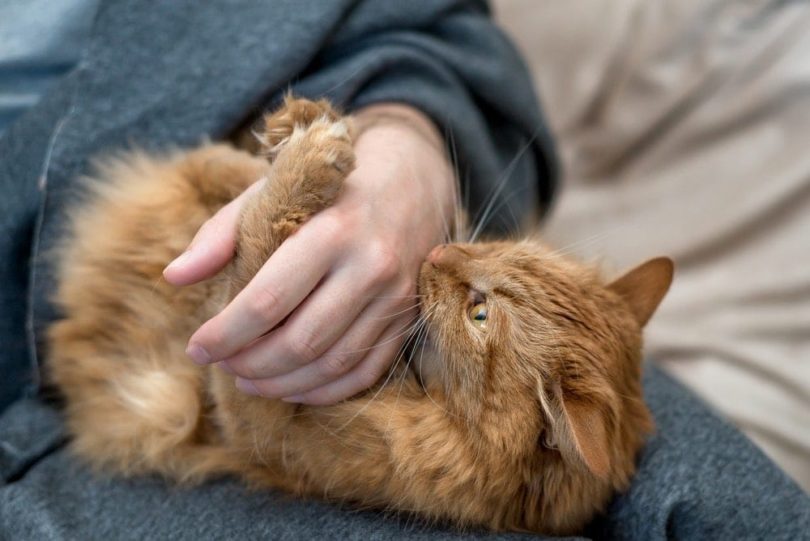
3. They Enjoy Chewing
Cats are curious animals, and many won’t hesitate to chew on new, interesting things—including your extremities. Let’s face it, to a cat, fingers are the perfect chew toy—they’re soft yet sturdy and don’t break easily. You can try redirecting this by offering something safe that they can chew on instead like a cat toy made for the purpose.
4. They’re Stressed Out or Bored
Some cats chew destructively when they’re feeling anxious, stressed, or unstimulated. In some cases, they will overgroom themselves, other cats, objects, or you as a way of alleviating their stress or boredom.
To combat this, keep your cat’s environment as calm and stress-free for them as possible and make sure they’re getting plenty of exercise and mental stimulation on a daily basis. If your cat continues displaying stress-related behaviors, it would be best to speak to a vet to find out how to help them.
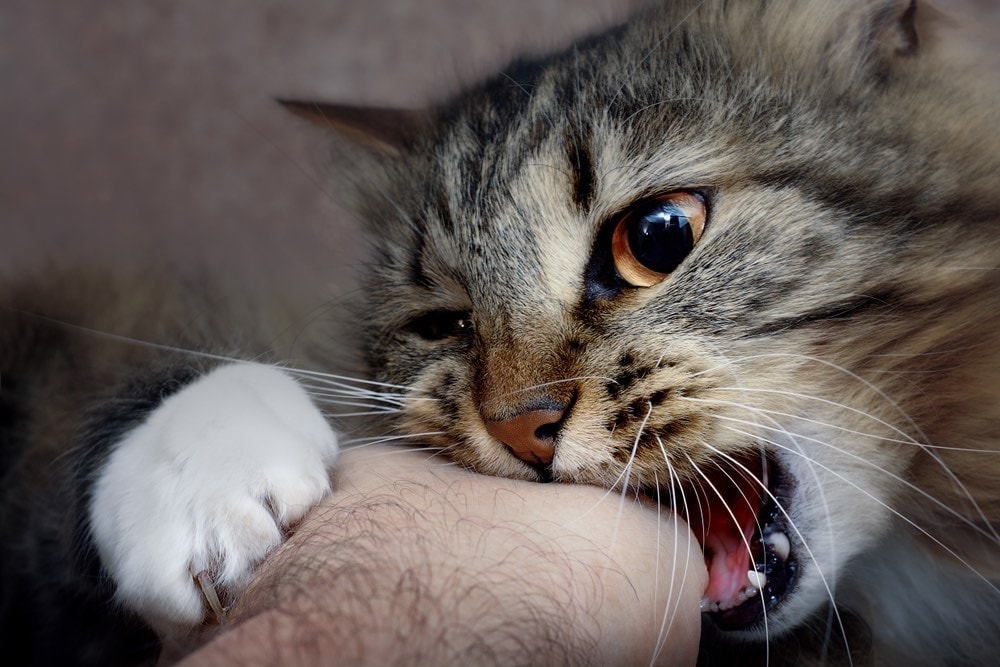
5. Overexcitement
Has your cat ever been purring softly, seemingly enjoying a good fuss, and then all of a sudden turned around, wrapped their paws around your wrist, and started biting your hand or arm? This happens when a cat gets overstimulated and is a sign that they don’t want to be petted anymore for the moment.
If you spot your cat’s tail swishing, their ears twitching or flattening, or hear growling when you pet them, it’s time to back away and give them some space.
6. Early Weaning
If a kitten is taken away from their mother too early, they may continue to chew and suckle on things including blankets and, in some cases, your fingers. Though some think it’s okay to take kittens from their mom at 8 weeks old, according to Pleasant Plains Animal Hospital, 12–14 weeks is more suitable.
Kittens do this to soothe themselves, so you might want to try replacing your fingers with a safe toy they can chew and suckle on instead.
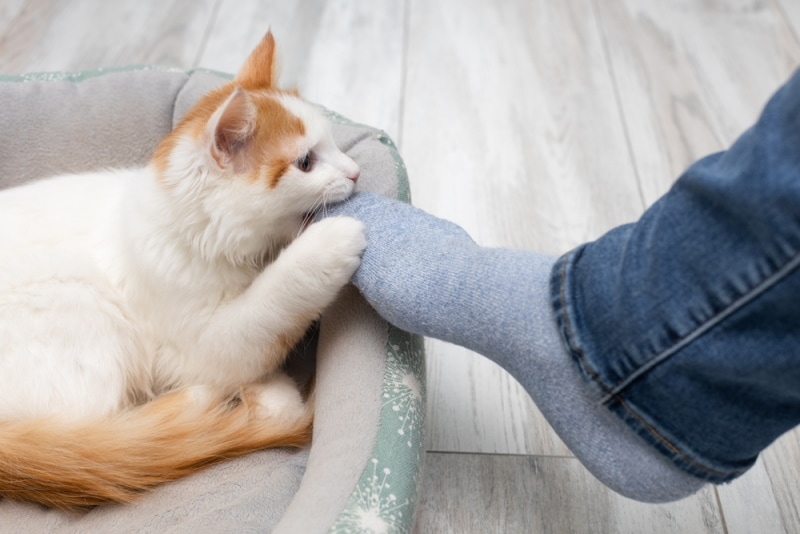
7. Teething
Chewing more than usual is an indication that your kitten is teething. Just like human babies, they get the urge to chew on things to comfort themselves. In some kittens, you may also spot drooling and blood around the gums.
Some kittens paw at their mouths as teething can be quite uncomfortable and some don’t eat with the same fervor as before due to discomfort. To combat this, you can make your kitten more comfortable with special kitty teething toys which are made from soft rubber. Please contact your vet if your teething kitten seems to be in a lot of pain.
8. You Smell Like Something Tasty
If you’ve just finished dinner and have the smell of something your cat finds appealing on your hands, don’t be surprised if they come sniffing around and try to take a nibble! If this bothers you, be sure to wash your hands before interacting with your cat. You can also distract them with an even tastier cat treat.
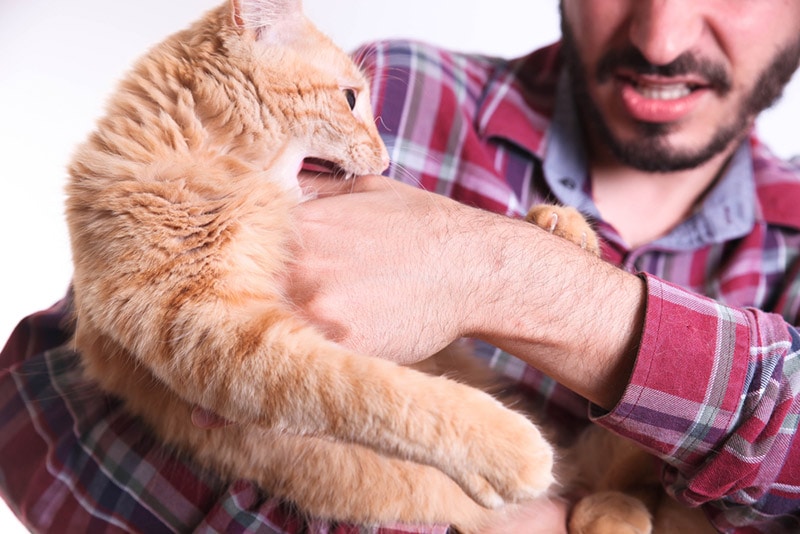
 My Cat Is Biting My Fingers: Do They Dislike Me?
My Cat Is Biting My Fingers: Do They Dislike Me?
There are many reasons why a cat might bite and chew on your fingers and, as long as you’re not doing anything to deliberately wind up your cat or stress them out, it’s unlikely that they dislike you. In some cases, cats nibble you gently, which is a sign of playfulness and/or affection, and, in others, they may not realize just how painful their bites can be due to a lack of boundaries.
Cats without biting boundaries might have been encouraged to use their owners’ hands as toys when they were kittens. When they’re kittens, it’s not going to hurt much even if they sink their teeth in a little harder than they should, but if an adult cat does it, it’s going to hurt. This is why it’s important to discourage biting behaviors early on.
 Conclusion
Conclusion
If your cat is consistently biting or chewing your fingers and it’s causing you pain, whatever the reason, it’s time to start setting boundaries. Take your fingers away and move away immediately to teach your cat that this isn’t nice behavior. Encourage positive chewing with irresistible toys and make sure your cat is getting enough play and exercise every day to be mentally stimulated.
If the behavior doesn’t stop in spite of everything, your next step is to contact your vet or a behaviorist to find out what’s going on.
Featured Image Credit: Luis Echeverri Urrea, Shutterstock

